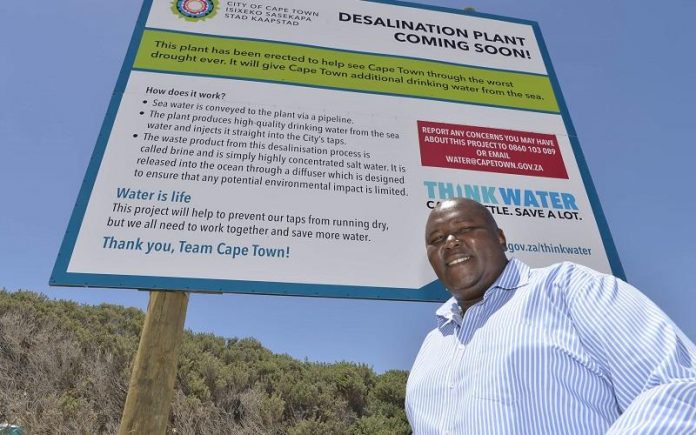The site preparation for the Monwabisi desalination plant, one of Cape Town’s seven desalination projects, has started, as part of the efforts to help see the city through its worst drought ever. These projects aim to make additional water available to supplement Cape Town’s existing supply.
Seven projects have been earmarked as part of the first phase of the city’s Additional Water Supply Programme. These are the Monwabisi, Strandfontein, V&A Waterfront, and the Cape Town Harbour desalination plants; the Atlantis and Cape Flats Aquifer projects; and the Zandvliet water-recycling project, which will collectively produce an additional 196 million litres per day between February and July 2018.
“Being mindful of the potential financial impact on water users, the city has worked really hard to see what existing budget it has available by making tough choices and reprioritise spending to boost drought mitigation initiatives,” said Councillor Xanthea Limberg, the City’s Mayoral Committee Member for Informal Settlements, Water and Waste Services and Energy. “It is anticipated that the Monwabisi plant will produce a total of 7 million litres of drinking water per day which will be fed into the water reticulation system.”
A nine-week construction period is planned for the completion of the first phase, comprising of two million litres. The first drinking water generated by the desalination plant is expected to be fed into the reticulation system by March 2018 with the second phase of 5 million litres to follow on after a further nine weeks.
All plants will comply with national legislation, which also provides for some fast-track measures for disaster relief projects such as the city’s emergency projects.
“The plant is intended to operate for a period of two years, based on a service agreement in which the city has agreed to buy water from the service provider, Water Solutions Proxa JV,” added Limberg. “The value of the tenders for the establishment and operation of the desalination plant at Monwabisi for a period of 24 months is R260 million (US$20.6 million).”









